Monitoring Avian Productivity and Survivorship (MAPS) is a nationwide program that studies and tracks songbird populations. I visited the Jug Bay Wetlands Sanctuary in Maryland in the Spring of 2012 to document its staff and volunteers as they went about collecting and recording data of various avian residents. (Do visit them if you find yourself in the area. Beautiful place and good people!)
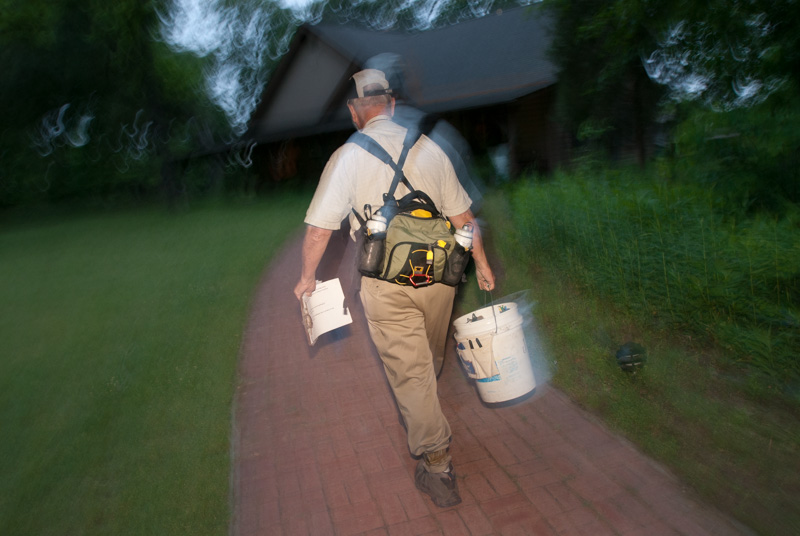
It’s an early start at Jug Bay. Mike Quinlan is first to arrive at 6 AM. He opens all 14 nets situated around the sanctuary, he then
helps lead the all volunteer crew as they capture, measure, weigh and band various song birds for the MAPS program.
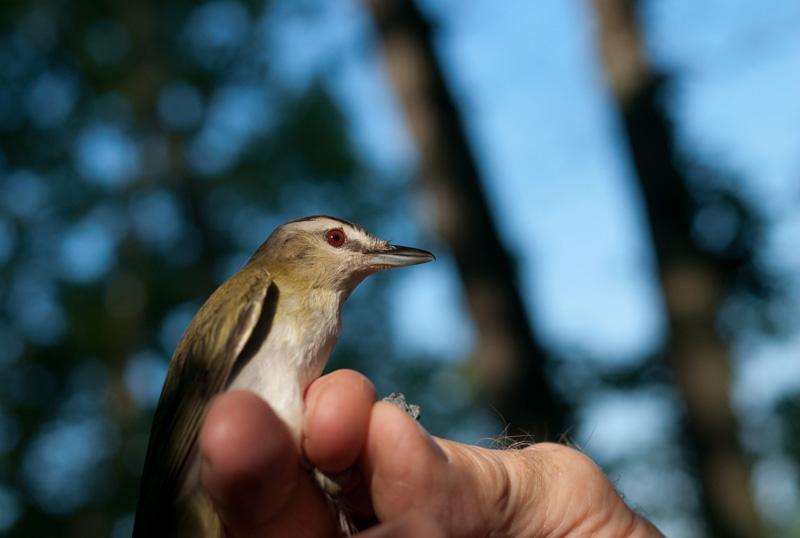
Portrait of an adult red-eyed vireo.
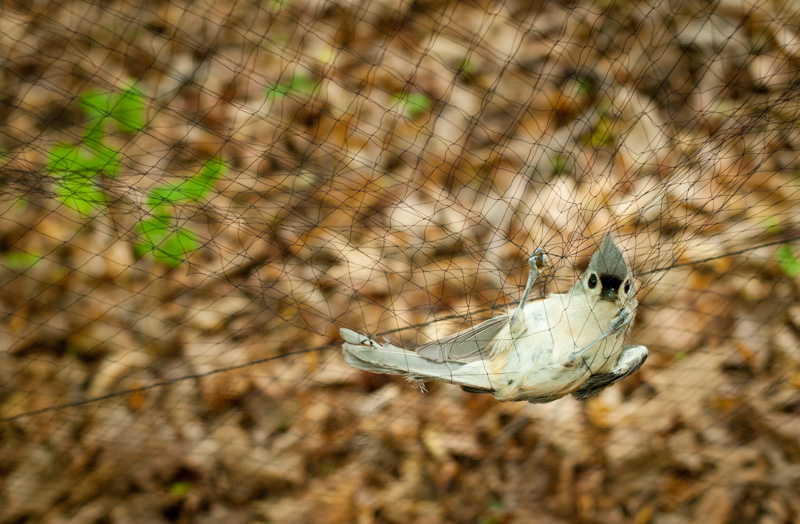
Tufted titmouse. Awaiting extraction from one of the mist nets.
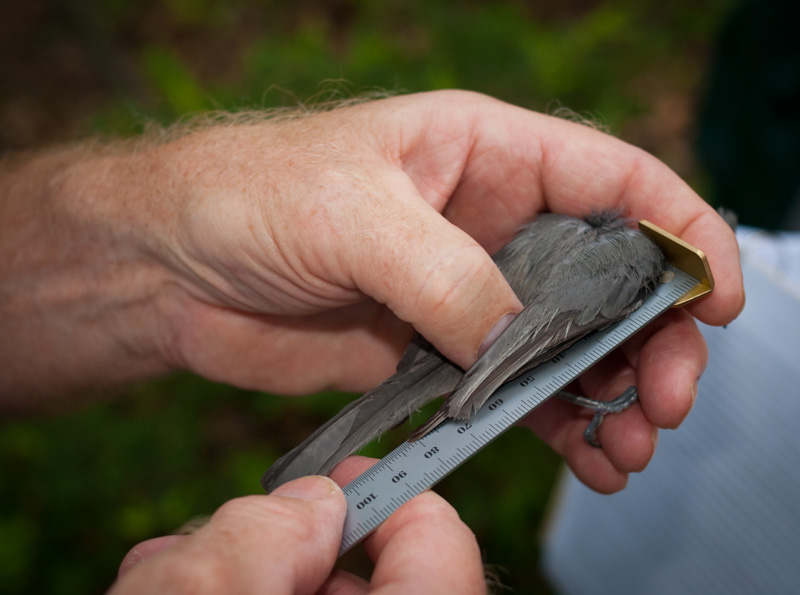
Measuring the wing of a tufted titmouse.
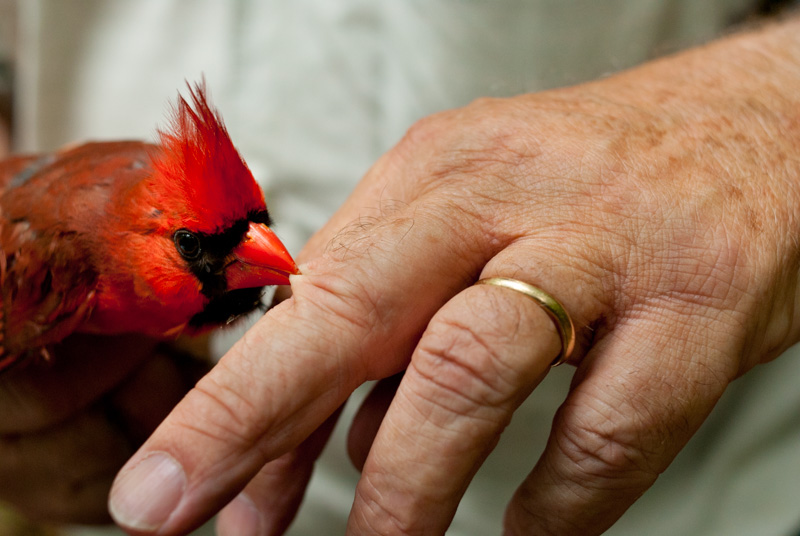
Male northern cardinal registering a complaint.
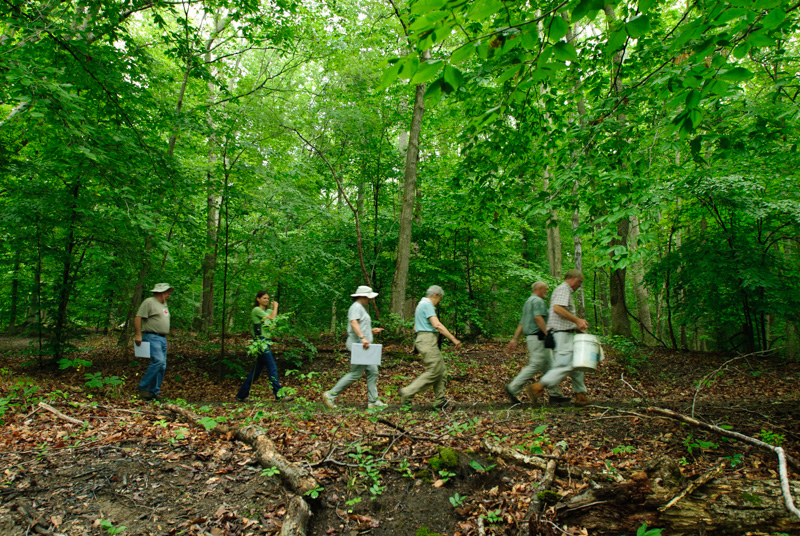
Volunteers are urged to bring sturdy, comfortable footwear. It is a one mile round trip to
visit all 14 net locations in the sanctuary, and there are 6 rounds each outing.
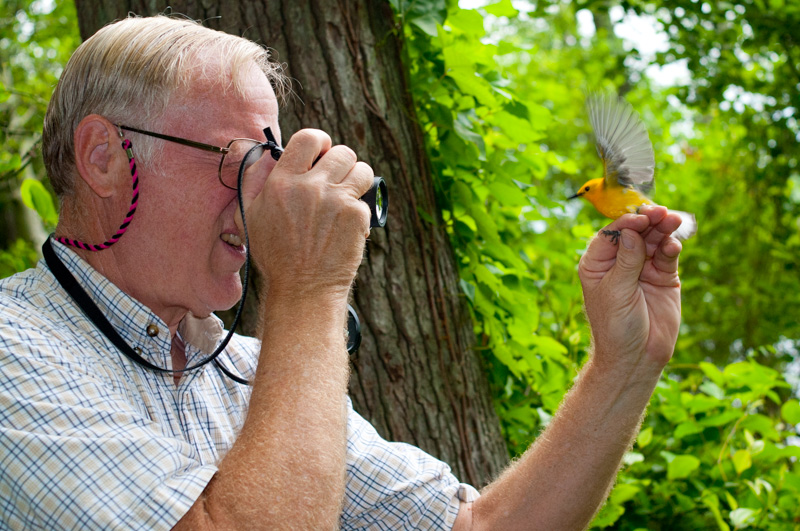
Sandy Teliak, one of the volunteer leads, photographs a prothonotary warbler for his records.
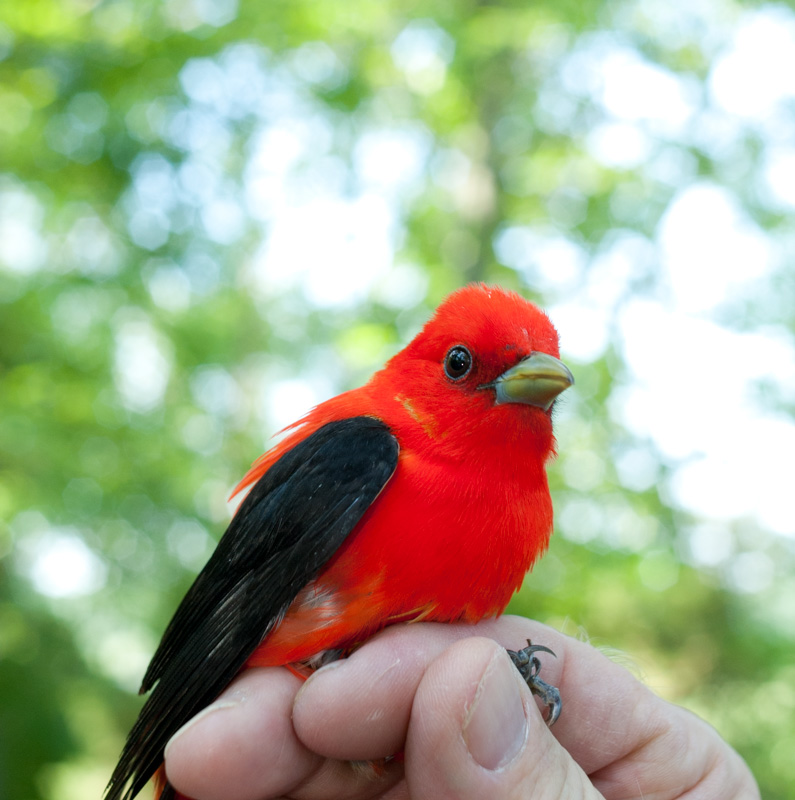
There’s no mistaking an adult male scarlet tanager.
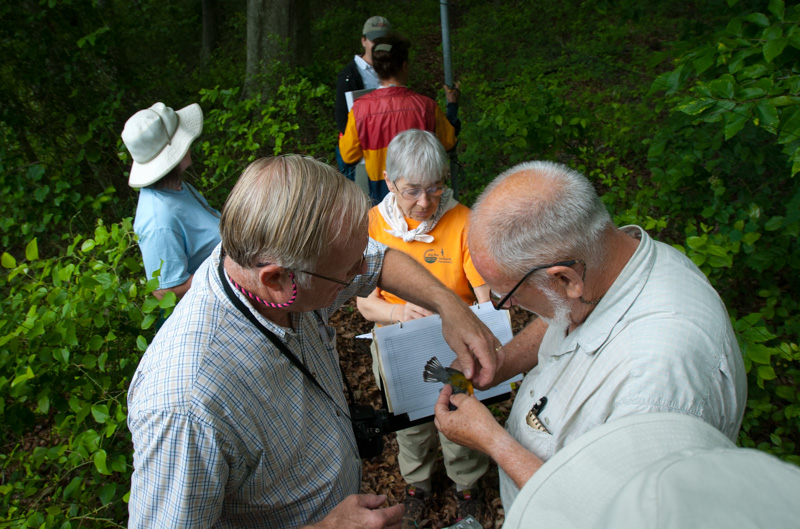
Mike Quinlan and Sandy Teliak take measurements as Karen Caruso (center) records the data.
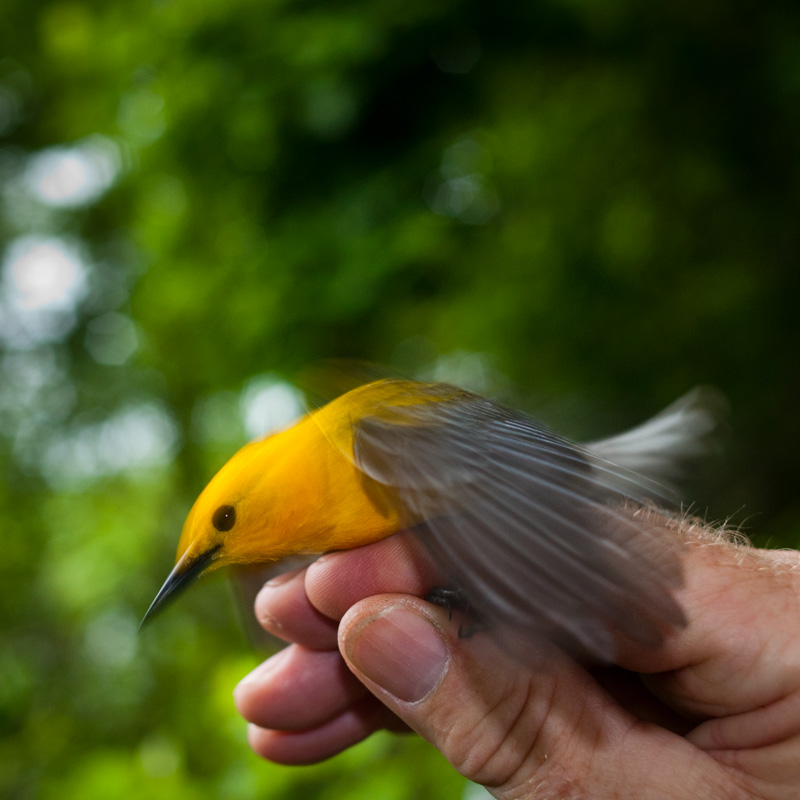
Male prothonotary warbler ready to take flight after banding.
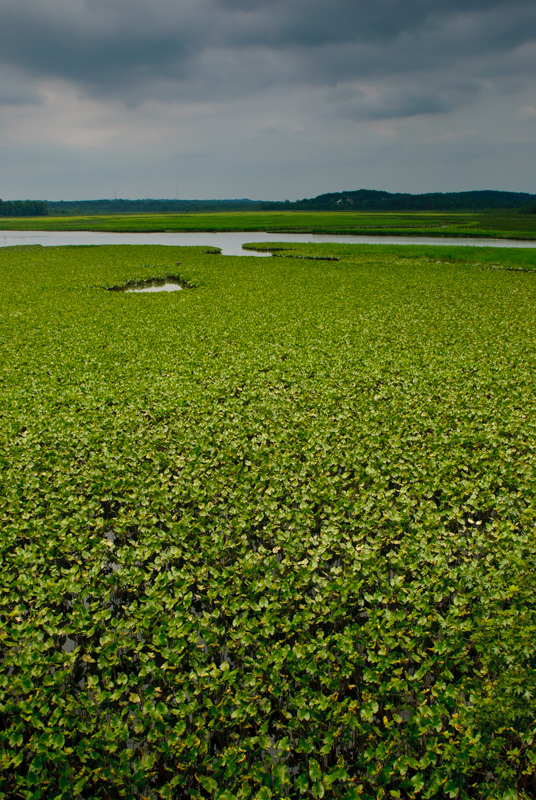
View of Jug Bay from the visitor center’s overlook deck.










